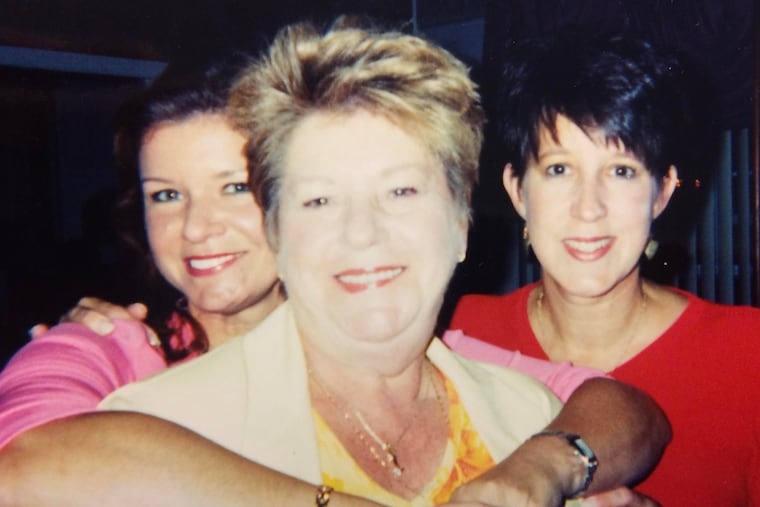My sister’s childhood cancer set the stage for a second diagnosis later in life | Opinion
Childhood cancer survivors need vigilant monitoring to ensure that other cancers and life-threatening illnesses are caught early.

I need few outside stimuli to remind me of my sister’s death from cancer 14 years ago. Memories are inspired by music she loved, by pictures on my walls, by the way I can sometimes see her smile on the faces of my nieces and nephews.
That last one is a killer but I don’t avoid it. Neither do I shy away from the voice-mail messages of hers that I recorded, including one assuring us that the stage 4 lung cancer she was diagnosed with in 2003 had again gone into a brief remission.
“I’m gonna be fine,” she said to the machine, and she was right — for one more year.
She had confidence in getting well because it was the second cancer in her life. Her Hodgkin’s disease showed up in 1979, when she was 18. The treatment left her with a slightly crooked smile that never marred a showstopper of a face: perfectly angled, with green eyes, and surrounded by rich, shoulder-length brown hair. We used to say she must have been the postman’s kid; she looked like none of her four siblings — or rather, we didn’t look like her.
Hodgkin’s — also known as Hodgkin’s lymphoma — appeared as an egg-shaped tumor on the right side of her neck that kept growing despite three doctors who said it was just a cyst. My mother didn’t buy that; she knew instinctively there had to be something else wrong with her daughter. My sister eventually had two surgeries, along with radiation treatments that made her chest and neck as angry red as a tomato. But they saved her life.
» READ MORE: As children, they survived cancer. They faced the fallout as adults.
She went into remission for a staggering 24 years. But while she was done with Hodgkin’s disease, she was not done with cancer.
I’m compelled to share her story because September is Childhood Cancer Awareness Month. My sister’s first cancer was treated as a childhood case because she was under 19. Progress was being made at that time in treating kids with Hodgkin’s, many with the same heavy radiation that saved my sister, before it killed her.
Almost a quarter-century after that first cancer, she was diagnosed with metastatic lung cancer, most likely caused, her doctors told us, by the radiation that bought her so much time after the first go-round. We were stunned. Even scarier was that her physicians didn’t see it coming; they had watched for thyroid or breast cancer, not lung cancer.
The result might have been different today because doctors have since learned that children treated in the 1970s and beyond became adults whose second cancers could be traced to their first. While the two in 10 children who survived childhood cancer decades ago has grown to eight in 10, about 70% will suffer from other illnesses such as heart disease, kidney disease, and infertility, and a third of those will be life-threatening, according to Children’s Hospital of Philadelphia.
If only our family had known how important it is to medically follow childhood cancer survivors through the rest of their lives. More doctors have since learned to initially treat young patients with lower doses of radiation and less toxic drugs. And the Cancer Survivorship Program at CHOP is among many that focus on long-term care by offering routine screening, education programs, and specialist referrals.
My sister died at 46, four years after her lung cancer diagnosis, time that was bought with chemotherapy and more surgeries. When her oncologist told her there was nothing more he could do, she followed him outside the exam room and begged him to try something else: cutting her open again, trial drugs, more chemo — anything to buy the kind of time she got back in 1979.
When she entered hospice the month before her death, my mother — who had refused to believe those doctors years ago — thought for sure her courageous daughter would rebound again. She took pictures of my sister near the end, photos that showed how cancer had thinned her face and confined her to a wheelchair that my dad would gently lift her in and out of.
A few more years with her would have meant the world to us: another Christmas, the Phillies World Series parade, her 50th birthday.
Or another voice mail telling me she’s going to be just fine.
Christina Mitchell is a longtime journalist, former executive editor of the Courier-Post in South Jersey, and a native of Northeast Philadelphia.